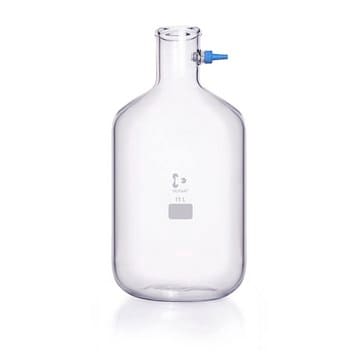424641
Disulfure de carbone
ReagentPlus®, purified by redistillation, ≥99.9%
About This Item
Produits recommandés
Densité de vapeur
2.67 (vs air)
Niveau de qualité
Pression de vapeur
5.83 psi
Gamme de produits
ReagentPlus®
Pureté
≥99.9%
Forme
liquid
Température d'inflammation spontanée
212 °F
Produit purifié par
redistillation
Limite d'explosivité
50 %
Impuretés
≤0.03% (water)
≤1.5 ppm hydrogen sulfide
≤2.5 ppm sulfur dioxide
<100 ppb benzene (No single impurity > 100 ppb, measured as benzene)
<500 ppb total hydrocarbon content
Couleur
APHA: ≤10
Indice de réfraction
n20/D 1.627 (lit.)
Point d'ébullition
46 °C (lit.)
Pf
−112-−111 °C (lit.)
Solubilité
alcohol: miscible(lit.)
benzene: miscible(lit.)
Densité
1.266 g/mL at 25 °C (lit.)
Chaîne SMILES
S=C=S
InChI
1S/CS2/c2-1-3
Clé InChI
QGJOPFRUJISHPQ-UHFFFAOYSA-N
Vous recherchez des produits similaires ? Visite Guide de comparaison des produits
Description générale
Application
Informations légales
Mention d'avertissement
Danger
Mentions de danger
Classification des risques
Acute Tox. 4 Inhalation - Eye Irrit. 2 - Flam. Liq. 2 - Repr. 2 - Skin Irrit. 2 - STOT RE 1
Organes cibles
Peripheral nervous system,Central nervous system,Cardio-vascular system,Eyes
Code de la classe de stockage
3 - Flammable liquids
Classe de danger pour l'eau (WGK)
WGK 2
Point d'éclair (°F)
-22.0 °F - closed cup
Point d'éclair (°C)
-30 °C - closed cup
Certificats d'analyse (COA)
Recherchez un Certificats d'analyse (COA) en saisissant le numéro de lot du produit. Les numéros de lot figurent sur l'étiquette du produit après les mots "Lot" ou "Batch".
Déjà en possession de ce produit ?
Retrouvez la documentation relative aux produits que vous avez récemment achetés dans la Bibliothèque de documents.
Notre équipe de scientifiques dispose d'une expérience dans tous les secteurs de la recherche, notamment en sciences de la vie, science des matériaux, synthèse chimique, chromatographie, analyse et dans de nombreux autres domaines..
Contacter notre Service technique






